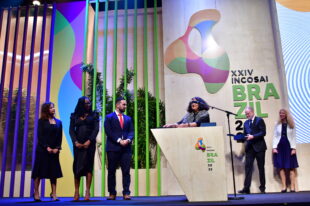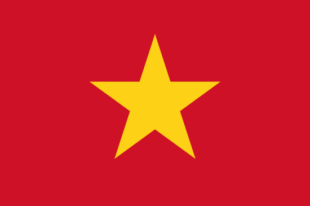INTOSAI Strategic Plan 2023-2028: Task Force Holds Inaugural Meeting

In September 2019, the 72nd International Organization of Supreme Audit Institutions (INTOSAI) Governing Board re-established the INTOSAI Task Force on Strategic Planning (TFSP). The TFSP—chaired by the United States Government Accountability Office (GAO) and composed of the Secretary General; Goal Chairs and Vice-Chairs; Policy, Finance and Administration Committee members; INTOSAI and Regional Organization Chairs and Secretariats; INTOSAI Development Initiative (IDI); INTOSAI Journal; and the Forum of INTOSAI Professional Pronouncements (FIPP) Chair and Vice-Chair—is designed to ensure INTOSAI Strategic Plan 2023-2028 continuity and sound monitoring of the plan’s implementation.
“INTOSAI provides great value to our member SAIs, as well as our citizens more generally. Our next strategic plan provides the opportunity to build on that success,” said Gene L. Dodaro, United States Comptroller General and Head of GAO, during the TFSP kick-off meeting held February 26, 2020.
INTOSAI leaders representing 21 Supreme Audit Institutions (SAIs) gathered for the inaugural meeting via teleconference to provide insight into global challenges and trends, best practices in gathering INTOSAI member input, and recommendations on creating task force operational efficiencies.
Global Challenges and Trends
Participants highlighted numerous challenges and trends affecting the global accountability community, including disaster management (health emergencies), immigration, mass migration, climate change, and e-waste. Financial and economic crises, illicit financial flows, money laundering, and the impacts of science and technology—such as artificial intelligence, big data, blockchain and machine learning—were also underscored. Continuing contributions to Sustainable Development Goal (SDG) achievement represented a common theme among delegates.
INTOSAI Member Input
“As we have done in the past, the current task force remains strongly committed to a strategic planning process that is open and inclusive and fully considers all points of view,” Dodaro noted.
TFSP efforts intend to contribute to an open, inclusive approach through external outreach, internal and external environmental scanning and careful review of existing INTOSAI activities, governing documents and agreements. Participants expressed a need to incorporate a “Strengths, Weaknesses, Opportunities and Threats” analysis into internal and external scans and consider approaches that turn threats into opportunities; leverage IDI’s Global Stocktaking report; coordinate internal scanning activities with regional organizations; compare and incorporate INTOSAI Goal initiatives; and more broadly share all received input with the INTOSAI community.
Task Force Operations
The TFSP—which aims to reflect the INTOSAI mission, core values and traditions—deems the Moscow Declaration, INTOSAI Midterm Performance and Accountability Report, as well as reports from INTOSAI Organs, Regional Organizations and external partners, as strategic plan input. Attendees agreed that leveraging strategic thinking and global trends is vital and noted a need to continue communicating INTOSAI’s value through the strategic plan. TFSP members suggested employing more effective, condensed message delivery with an enhanced communication approach and emphasized the continued importance of fighting corruption, promoting SAI independence and implementing standards.
Mr. Dodaro expressed his appreciation for the input and attention to the strategic planning process and stressed such views are “critical to ensuring that we continue to evolve as a dynamic and inclusive organization where our mutual experiences benefit us all.”





